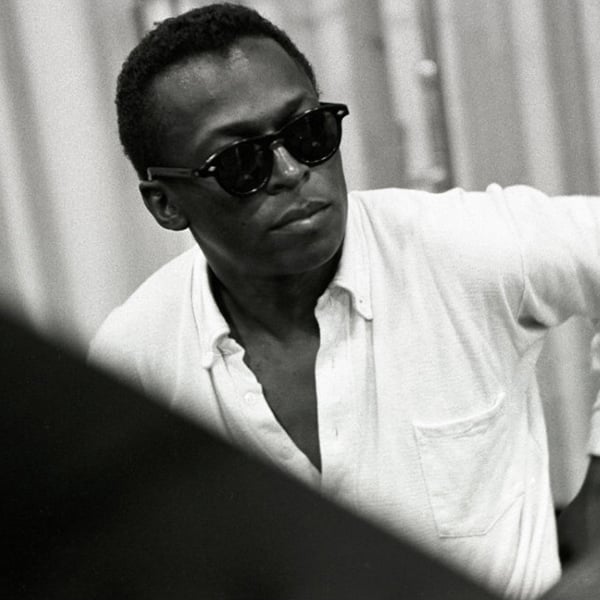
Agharta and Pangaea are two double-disc live recordings from 1975—both recorded on the same day, February 1 in the same venue—and serve multiple roles in Miles’ catalog. Together they represent a bookend to arguably the most prolific and musically restless period of Miles’ career. By the time these albums were released—Agharta in 1975 and Pangaea the following year, Miles had disappeared into semi-retirement due to health complications compounded by an exhausting touring schedule. The hiatus from recording or performing would last five long, rumor-ridden years: Where is Miles and what’s he doing? When would he return and what would he sound like? Would he return?
Agharta and Pangaea were moments caught on one of the last, grueling runs of the 1970s: a three-week tour of Japan, playing to sold-out crowds in large theaters and concert halls, evidence of the unquestioned worship he enjoyed overseas while facing controversy and derision from jazz fans back home for how far behind he had left the world from whence he came. Backing him on these recordings was one of his strongest bands of that period, a road-honed septet including Sonny Fortune on saxophones and flute; two guitarists—rhythm specialist Reggie Lucas and effects wizard Pete Cosey; funk bassist Michael Henderson; beats master Al Foster on drums and Mtume on congas and other percussion. Miles himself balanced duties on wah-wah infused trumpet as well as organ, on which he played off-balance chords, sweeping up and down in volume as if urging ideas and manipulating moods into the music.
The twin albums together serve one other important purpose—because of a limited number of edits, they are true to the manner in which Miles’ music unfolded in concert, providing evidence that there was method to the Fusion/jazz-rock madness, that pre-arranged structures were being worked on, that the music was not some loose chaotic jam. Though almost all the tracks covered full LP sides, there were discreet sections, Miles employing certain phrases to signal shifts in tune or tone, directing certain players to drop out or jump in, all while listening intently for new ideas to stick with and develop.
Some tunes might have been familiar to those closely following Miles’ recorded output over time—“Theme from Jack Johnson” shows up on Agharta, as does “Maiysha” (from Get Up With It) and even a quote from “So What.” Miles did not help out by labeling which tunes were which; Pangaea for example listed only two tracks for four LP sides, while Miles scholars have identified five separate tunes.
But familiarity was not the priority; nightly exploration and surprise was. The music is indeed loose, which is the idea: to give it the freedom to live and grow in the moment, which is in fact one of the defining principles of jazz performance. One can easily imagine how challenging these two albums—dark and dense, filled with moments of delirium and space-talk—must have been to anyone identifying themselves as a jazz enthusiast in 1975. Today Agharta and Pangaea sound less threatening and much less strange, signifying how influential these recordings were on many musicians and producers outside the jazz circle, influencing rock, funk, punk, noise, ambient, and other worlds of musical expression.




